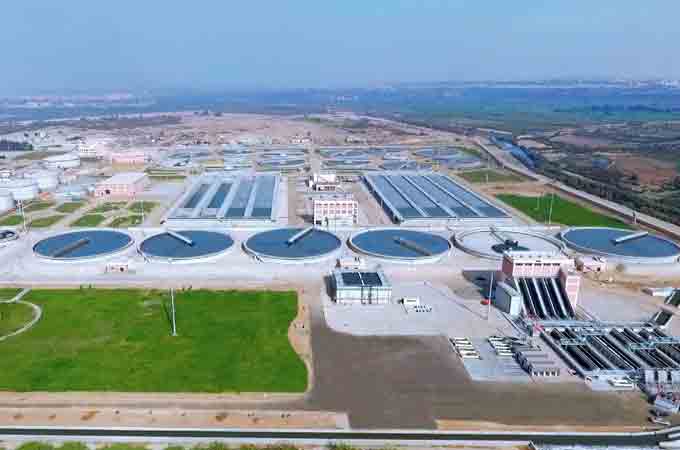Spanish infrastructure major Acciona has announced that its consortium with Egyptian company DHCU has secured the contract to provide operation and maintenance services for Phase II of the Gabal El Asfar wastewater treatment complex.
The contract was awarded by Cairo-based Construction Authority for Potable Water and Wastewater (CAPW) for an eight-year period. The project scope includes rehabilitation works and upgrades on two plants of the complex, each with a capacity of 500,000 cu m per day.
Gabal El Asfar is the largest wastewater treatment facility in Africa and the Middle East, and the third largest in the world in terms of treatment capacity, at 2.5 Hm³ per day. It serves the eastern part of Cairo which has a population of eight million people.
Acciona said it has extensive experience in water treatment in Egypt. In 2013, it was awarded the contract for the design, construction and commissioning of an expansion of Gabal El Asfar, increasing its daily treatment capacity by 500,000 cu m.
In 2022, the company, also together with DHCU, won the contract to carry out the operation, maintenance and improvement of Phase I of the oldest wastewater treatment plant (WWTP) of the complex, with a capacity of 1.5 Hm³ per day.
The Spanish infrastructure giant has also worked, together with CAPW, on the operation of the water infrastructure for the upper-level water supply network in New Cairo, a satellite city of Cairo, located about 30km east of the capital.
This contract includes the collection of water from the Nile River, its transport to a drinking water treatment plant and its treatment and subsequent storage before being supplied to consumers, said Acciona in its statement.
The company has also been involved in the construction of five other drinking water treatment plants in the country -Almerya, Rod El Farag, Mostorod, North Helwan I and North Helwan II) - with a total treatment capacity of more than 600,000 cu m per day that can serve an estimated population of more than six million, it added.-TradeArabia News Service































